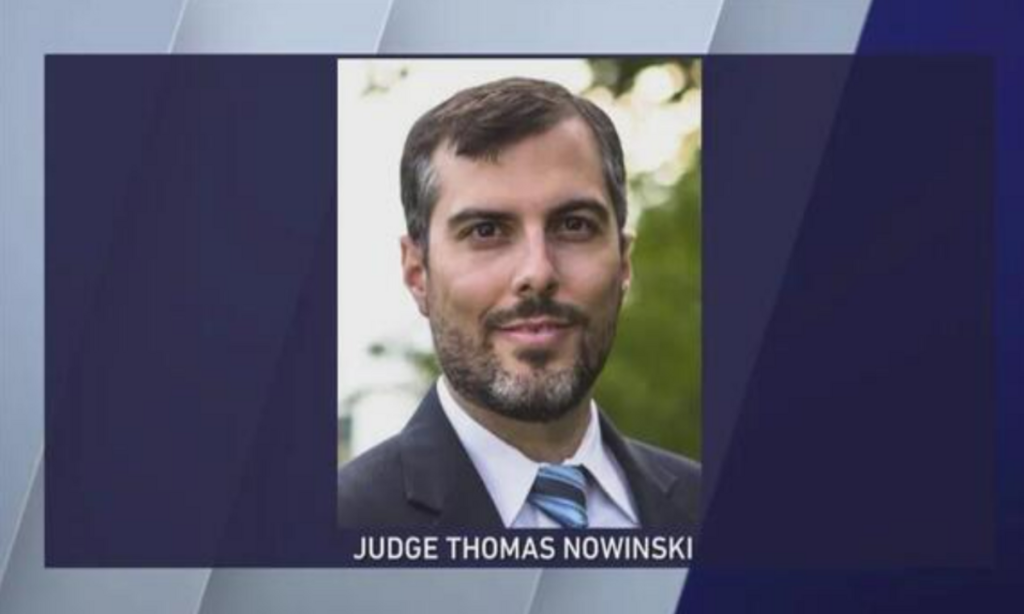A recent domestic violence case has prompted significant changes in the Chicago judicial system. The decision to reassign a judge involved in the case comes after public outrage over the tragic stabbing of 54-year-old Lacramoira Beldie by her husband, Constantin Beldie.
The incident unfolded on November 19 in Portage Park, Chicago, where an off-duty police officer tried to intervene after witnessing the stabbing. The situation escalated, resulting in the officer firing shots at the suspect, who later fled the scene in a gold minivan. Authorities found Beldie dead inside the vehicle a block away.

A Chaotic Scene and Public Outcry
The off-duty officer, who suffered a non-life-threatening leg injury, called for help during the chaos. Multiple 911 calls from witnesses and the injured officer flooded Chicago’s Office of Emergency Management and Communications (OEMC).
Court records later revealed that the suspect, Constantin Beldie, had a history of domestic violence. Just a month before the incident, Beldie was charged with assaulting his wife. Despite prosecutors requesting his detention, Judge Thomas Nowinski released him with GPS monitoring, which later proved insufficient to prevent the tragedy.
The public expressed outrage over the judicial decisions that allowed Beldie to remain free despite his violent history.
Judicial Oversight and Errors
Cook County Chief Judge Timothy Evans acknowledged shortcomings in the handling of the case. Evans stated that during the October hearing, Judge Nowinski was provided incomplete information.
Court records indicate that Beldie violated the exclusion zone of his GPS monitor a day after the October hearing, but the violation went unreported due to a lapse by the monitoring technician. The technician has since resigned after being temporarily suspended.
Judge Nowinski will now be reassigned to handle misdemeanor and traffic cases, effective January 21. This decision was made in consultation with his Presiding Judge, Judith Rice, and aims to restore trust in the judicial process.

Steps Toward Reform
In response to the tragedy, Judge Evans announced several reforms to improve the handling of domestic violence cases and protect survivors. These measures include:
Improved Collaboration: Courts will work closely with the Cook County State’s Attorney’s Office to ensure judges receive comprehensive information about a defendant’s criminal and civil history.
Enhanced Risk Assessment: The court plans to adopt a more detailed risk assessment tool that includes survivor interviews.
Stronger Monitoring Policies: Defendants violating GPS monitoring conditions will be required to appear in court the following day.
Better Service of Protective Orders: Courts will collaborate with the Sheriff’s Office to ensure timely enforcement of protective orders.
Evans also highlighted the understaffing issue in the Adult Probation Department’s Home Confinement Unit, which oversees GPS monitoring. He called for a $23.9 million budget increase to hire 153 additional staff to implement best practices for pretrial monitoring.
Advocacy Groups Demand Accountability
Amanda Pyron, CEO of The Network: Advocating Against Domestic Violence, praised the reforms but emphasized the need for continued advocacy. “With this tragedy, we are reminded of how untimely releases can have fatal consequences. Domestic violence advocates must be part of the reform process to ensure survivors are kept safe,” she stated.
The case has sparked widespread calls for change, with many urging the justice system to prioritize the safety and well-being of survivors over procedural gaps.
A Tragic Reminder
The death of Lacramoira Beldie serves as a stark reminder of the importance of addressing domestic violence proactively. As reforms take shape, Chicagoans hope for a justice system that better protects the most vulnerable members of the community.
Disclaimer—Our team has checked this article to ensure its accuracy and eliminate any misinformation. We are committed to providing clear and reliable information for our readers.




